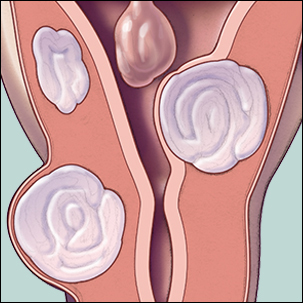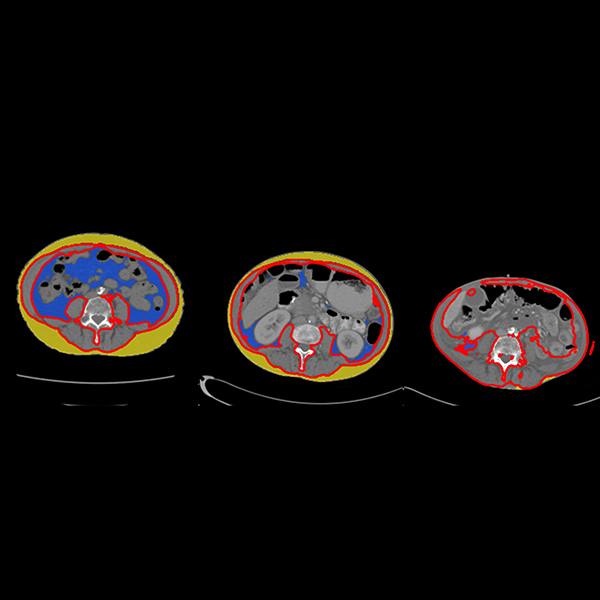-
Research
Discovery’s Edge: The dawn of a new medical era with genomics
A genome is a mind-boggling amount of information. Researchers have labored for decades to order and identify more than 3 billion base pairs of DNA in a set of human chromosomes.
That was just the beginning of research on the human genome. Researchers are now exploring how deeper genetic knowledge can be used for early detection of diseases, such as heart disease, Alzheimer's disease and various types of cancer. With this expanding knowledge, they hope to find new treatments for some of the world's most pressing medical challenges.
Pioneering genetic discoveries
Genetic research first intrigued pharmacologist Richard Weinshilboum, M.D., of Mayo Clinic in Rochester, Minn., more than 30 years ago, when he began painstaking biochemistry techniques in his Pharmacogenomics Laboratory.
As Dr. Weinshilboum's research team studied enzymes involved in eliminating neurotransmitters, they discovered a related enzyme, known as TPMT, that eliminated a particular type of toxicity from the body after drug therapy for certain leukemia patients. Because 1 in 300 children with leukemia had adverse reactions to the drug therapy, Dr. Weinshilboum was curious whether variations in enzyme levels based on each child's genes played a role in the side effects.
"We wondered if there was a genetic inability to break down the drug, essentially causing an overdose in kids who couldn't metabolize it," he recalls.
The experiments conducted in Dr. Weinshilboum's lab during the late 1970s and early '80s were something of a novelty. According to Dr. Weinshilboum, only two or three other laboratories around the world were exploring the connection between drug metabolism and genes.
When researchers discovered that having an undetectable level of TPMT meant a life-threatening reaction for certain pediatric patients, the discovery became a useful laboratory test. In the early 1990s, Mayo Clinic began measuring the TPMT levels of children before starting leukemia treatment to help prevent adverse reactions.
For Dr. Weinshilboum, the finding suggested that other genes also might affect the metabolism of other drugs, and he went on to make several related discoveries, including the identification of a series of novel genes associated with variations in the toxicity or efficacy of drugs used to treat breast cancer. However, in an era in which sequencing a single gene could take years, the idea that physicians could possibly direct treatment by manipulating a patient's genome remained sheer fantasy.
"That was the vision," Dr. Weinshilboum says. "I never imagined I'd see it happen during my career."
Genomics becomes reality
The genomic era that Dr. Weinshilboum once only imagined is now becoming a reality.
The first watershed moment occurred in 2001, when the International Human Genome Sequencing Consortium published the first draft of the human genome in the journal Nature with the sequence of the entire genome's 3 billion base pairs about 90 percent complete. The final sequencing and mapping of the human genome was finished in 2003. The Human Genome Project cost $3 billion and took 13 years.
It wasn't clear for years, however, how that vast amount of genomic information could be used. But in the last five years, with the development of next-generation DNA sequencing, a high-throughput process for acquiring an entire genome, researchers can now identify a small section of a person's genome that contains the problematic genes and obtain a sequencing report in a matter of a week, at a cost of about $700.
This leap in speed and reduction of cost has meant a turning point in using genomics for patient care, says Gianrico Farrugia, M.D., director of Mayo Clinic's Center for Individualized Medicine. He found that researchers and clinicians he worked with had long been thinking of plans for genomic technology.
"We recognized, with these developments and Mayo's infrastructure, that we had the opportunity and the obligation to bring this incredible tool to patient care," Dr. Farrugia says.
At Mayo Clinic, genomic, or individualized, medicine is providing a wide range of therapies that are tailored to each person's genes. It's no small feat.
Despite the speed of today's sequencing methods, the amount of data in a genome is staggering: 3.2 billion chromosomal base pairs. About 2 percent of those are known as the exome and currently considered most relevant to disease processes.
Individualized medicine at Mayo Clinic begins with careful sequencing of the relevant section of the genome in the Medical Genome Facility, led by genetics researcher Eric D. Wieben, Ph.D.
When Dr. Wieben arrived at Mayo Clinic in Rochester as a new biochemistry-molecular biology faculty member three decades ago, he was interested in genetics. He remembers meeting with Dr. Weinshilboum and thinking the idea of connecting genes to an individual's treatment seemed like "an intellectually interesting idea. I never had any idea that it was going to explode into something so powerful and important."
With the developments in technology, such as next-generation sequencing, the extremely fast throughput breakthrough of recent years, he now refers to sequencing as "the easy part" of genomic medicine. The hard part, he says, is properly analyzing all the data.
Mayo Clinic has developed the infrastructure and the necessary staff of bioinformaticians, biostatisticians and computer scientists, led by Jean-Pierre A. Kocher, Ph.D., chair of the Division of Biomedical Statistics and Informatics. They perform the weekslong, highly complex stage of sorting the data, constructing an individual's genome from the information and then comparing it to a standard genome in order to isolate key areas that differ.
In those genetic variants lie the clues to how to approach treatment. This happens in Mayo Clinic's Individualized Medicine Clinic, which takes referrals for difficult-to-treat cancer cases and other hard-to-diagnose conditions that may have a genetic origin.
Pharmacogenomics provides first practical application
Though genomic medicine takes many forms, it's pharmacogenomics — the field Dr. Weinshilboum helped advance — that has provided the first practical application to patient care.
This year, the Center for Individualized Medicine will use pharmacogenomics as a powerful safety net for patients taking certain prescription drugs. Based on research at Mayo Clinic and elsewhere, it's become clear that people with certain genetic variations have adverse or abnormal responses to a variety of antiviral, antidepressant and anti-seizure medications.
At Mayo Clinic, when infectious disease physicians, psychiatrists or neurologists prescribe one of these medications, a software program first searches the patient's medical history for relevant data and an alert will pop up in the electronic medical record suggesting to the attending physician that the patient be tested for the genetic variation.
"Physicians can use the alert to suggest the test," Dr. Farrugia says. "If patients have the variation, the dose can be adjusted. If the drug is contraindicated, the system will present a list of other medications they can take."
The pop-up will also include a link to AskMayoExpert, the clinic's internal reference database, which can provide the physician with lists of suggested dosages based on genomic testing.
The BEAUTY project
Pharmacogenomics is also providing new hope for patients with hard-to-treat cancer.
Last year, the Center for Individualized Medicine implemented the Breast Cancer Genome-Guided Therapy Study (BEAUTY Project) to study women with breast cancer who have a high risk of recurrence.
Before treatment begins, researchers obtain two genomes, one from a patient's healthy cells and one from her tumor cells. Sequencing can determine a genetic signature for the tumor and whether the woman is likely to respond to treatment, says Mayo Clinic oncologist James N. Ingle, M.D.
Sequencing can also reveal whether the woman is likely to have debilitating side effects, such as the pain that causes some women to quit the standard drugs, known as aromatase inhibitors. For those patients, doctors may avoid aromatase inhibitors from the outset and instead prescribe tamoxifen.
"We at Mayo really launched the genome-guided therapeutic treatment with the idea that this approach is going to impact all of oncology," says Liewei Wang, M.D., Ph.D., a molecular pharmacologist at Mayo Clinic in Rochester.
In the lab, researchers are implanting cell lines from the BEAUTY patients' tumors into mice. The so-called mouse avatars enable researchers to study the effects of chemotherapy on 3-D versions of tumors and identify the best treatment for a woman without actually testing it on her.
Researchers also sequence each woman's tumor genome after treatment "to get a full assessment of how the genomic signature might change with the exposure to chemotherapy," Dr. Wang says.
For women whose tumor recurs, the second sequencing and the understanding of later possible tumor mutations may help point doctors to other targets within the tumor that are candidates for drug therapy.
New genomic studies coming
This year, the Center for Individualized Medicine is launching a study for prostate cancer that is similar to the BEAUTY Project. In another project, researchers will look at the gene CYP2C19 in 6,000 patients from institutions around the world to determine whether it's involved in enabling cardiovascular patients to metabolize the anti-clotting drug clopidogrel (Plavix). The findings may alter treatment for thousands of patients now receiving stents.
October 2013 marked the first anniversary of the Individualized Medicine Clinic, which has now seen more than 60 patients.
"There are now more than 4,000 conditions that we can look for simultaneously," says Matthew J. Ferber, Ph.D., an expert in next-generation sequencing at Mayo Clinic. "These are patients who are finally getting an answer, which can mean an enormous amount to them and their families."
And it doesn't stop there. Dr. Farrugia says that the uses of genomic medicine will continue to expand.
"Mayo Clinic entered the field in a characteristically careful and thoughtful way about how the science could be of best use to patients," Dr. Farrugia says. "But we're here, and it's happening. It's our responsibility to make sure that this transforms the practice of medicine."







